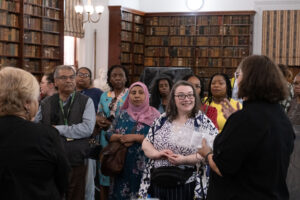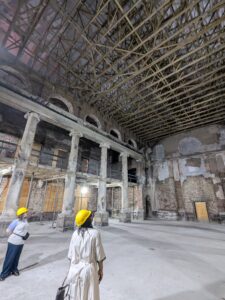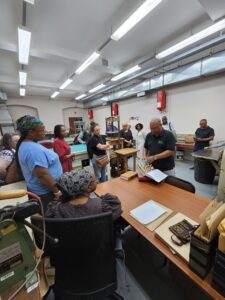Towards a Common Understanding of Documentary Heritage: CCH and University of Cape Town Libraries host regional workshop
26 February 2025
Members of IFLA’s Advisory Committee on Cultural Heritage (CCH) joined colleagues from across the southern African region in Cape Town, South Africa to investigate a more inclusive definition of documentary heritage.
This collaboration between University of Cape Town (UCT) Libraries and the CCH helped address one of the committee’s planned actions for their current term: to prioritise the perspectives of the global south, which have historically been marginalised in international dialogues, to review the definitions and understandings of documentary heritage.
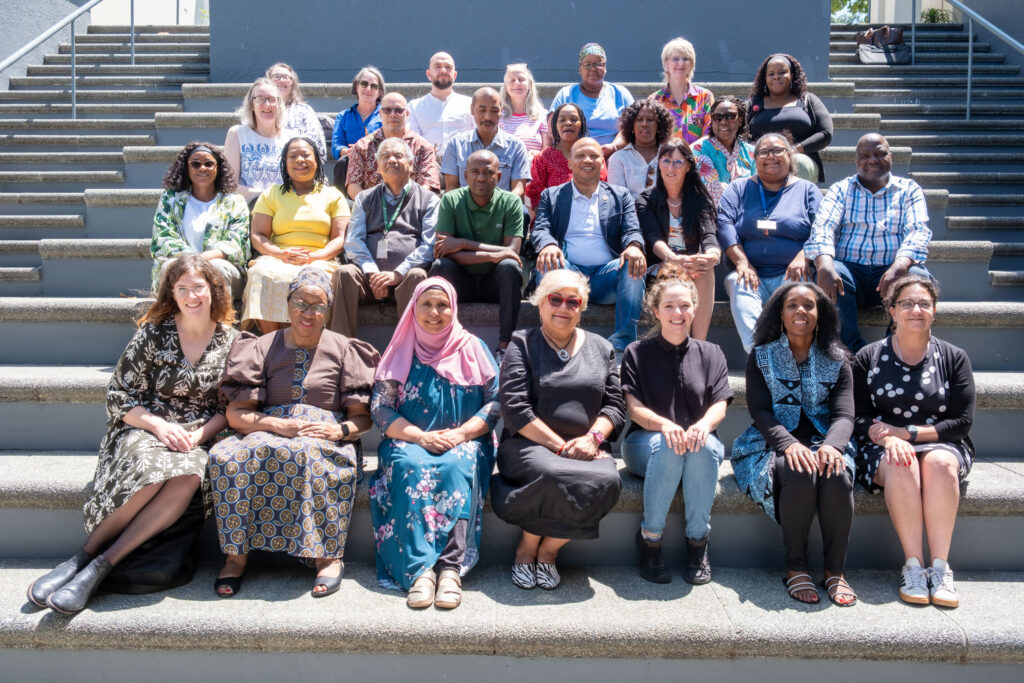
The Participants
This workshop encouraged a range of perspectives, nationalities, areas of expertise, and types of institutions. The groups make-up included:
- Participants and committee members from South Africa, Zambia, Tanzania, and Lesotho
- Committee members from the United Kingdom and Poland, and an IFLA HQ liaison
- Library, rare book, archive and audiovisual professionals, senior library managers, and representatives of library associations
- Colleagues from national and university libraries and local archives
The Workshop
As the CCH’s goal is to centre perspectives of the global south in elaborating these discussion, the workshop prioritised participation.
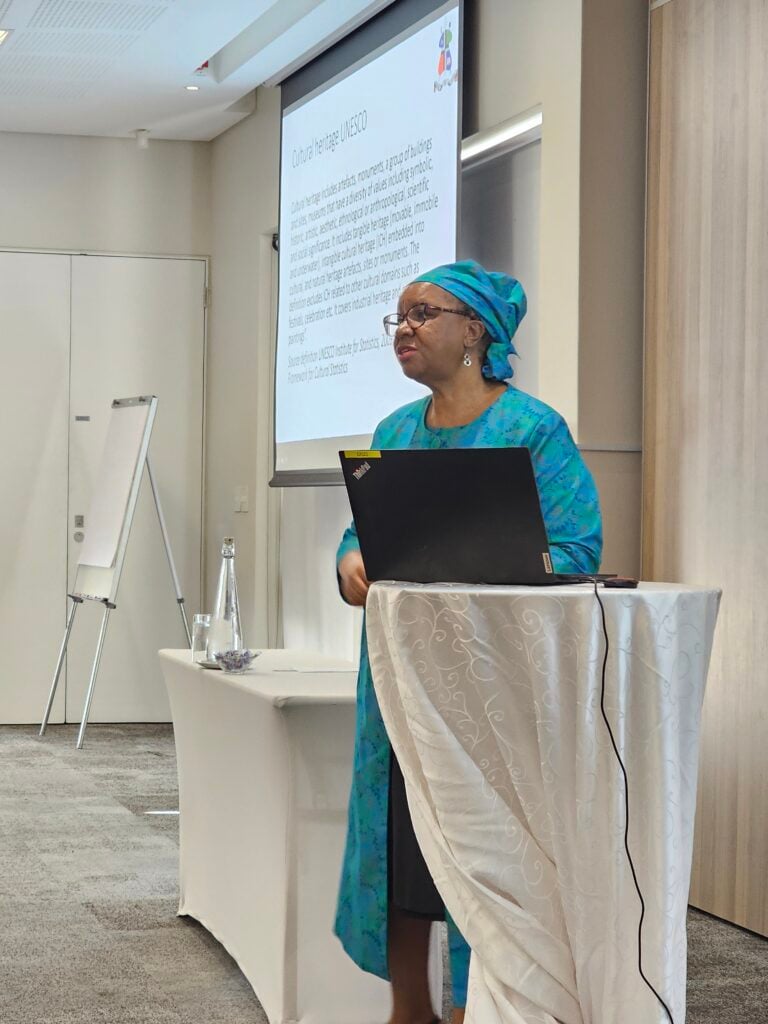
IFLA was excited to be able to sponsor the participation of a keynote speaker, Dr Buhle Mbambo-Thata, University Librarian at the National University of Lesotho and member of IFLA’s South Saharan Africa Regional Division Committee.
Dr Mbambo-Thata spoke to current definitions of documentary heritage and highlighted what important aspects are potentially being left out. She highlighted that current definitions, such as that of UNESCO, excludes oral tradition, intangible cultural heritage, festivals, and celebration, noting that in Africa, this is the core of culture. Already, knowledge is being excluded.
She was joined by Dr Divine Fuh, Director of the Institute for Humanities Africa (HUMA) at the University of Cape Town, and Mr Kepi Madumo, CEO and National Librarian, National Library of South Africa. These speakers set the scene by sharing insight into nuances of cultural heritage and decolonisation from an African context, as well as a look at how documentary heritage is treated by South African legislation.
The group was then presented with some provocation questions to get the discussion going:
- Does documentary heritage actually diverge from other types of cultural heritage (material, intangible)? How?
- What is being left out (for example, oral culture) from the definition of documentary heritage? Are there ways to address these gaps?
Following this investigation of documentary heritage, the group had focused conversations on the role of libraries and archives in preserving and providing access to this knowledge.
With all the input gathered, the group was able to come back for the second day and co-create a position paper to start a global conversation on how documentary heritage may be more inclusively defined.
This resource will soon be launched on the IFLA Repository – stay tuned!
With this work, the committee hopes to encourage an understanding of knowledge in a broad sense, which should enable new uses of recorded memory, building on collective knowledge, contextualising, preserving tradition and meaning, and contributing to undoing harm. Colleagues in South Africa will also plan to add their voices to the G20 Arts and Culture meeting that will be held in South Afric during the proceedings of the G20 Summit.
Get involved!
Do you have ideas on these questions about how documentary heritage is defined, and what the role of libraries are in preserving and providing access to it?
Click here to share your ideas with the CCH.
The CCH in Cape Town
Beyond the workshop, UCT Libraries generously hosted the CCH for a series of site visits and for a hybrid business meeting.
The Committee toured UCT Libraries on their campus, including a visit to the Jaggar Library, which was the site of a devastating fire in 2021. The committee met with Jaggar Library staff, including archivists and librarians, who shared their experiences and incredible effort to recover the damaged collection and return it to use.
Colleagues also were given a special behind-the-scenes tour of the National Library of South Africa and explored some of their special collections.
IFLA thanks UCT Libraries, the National Library of South Africa, and all those who participated in the programme!
